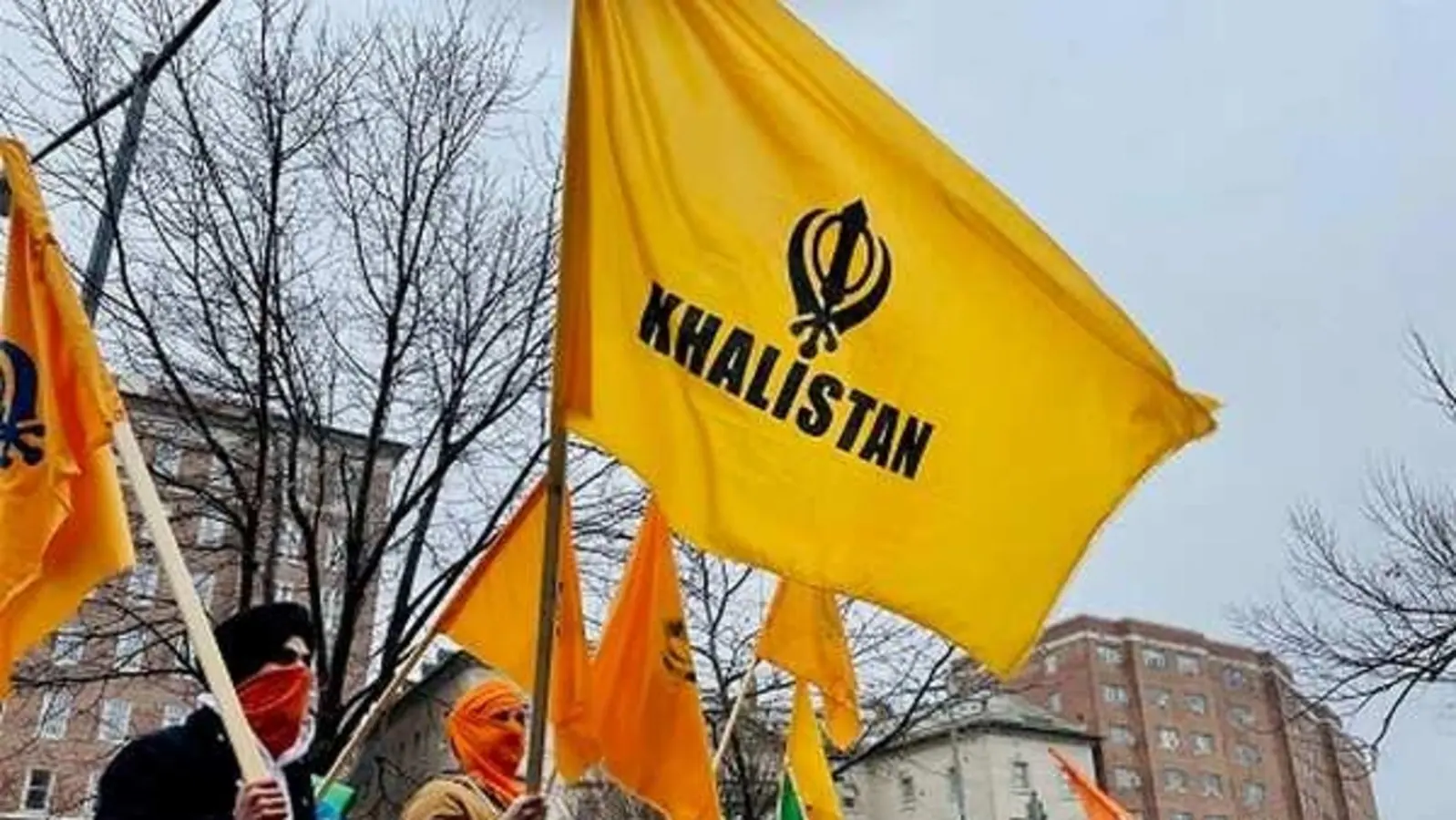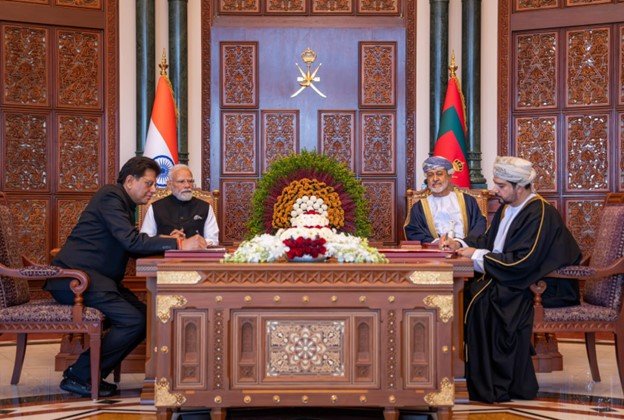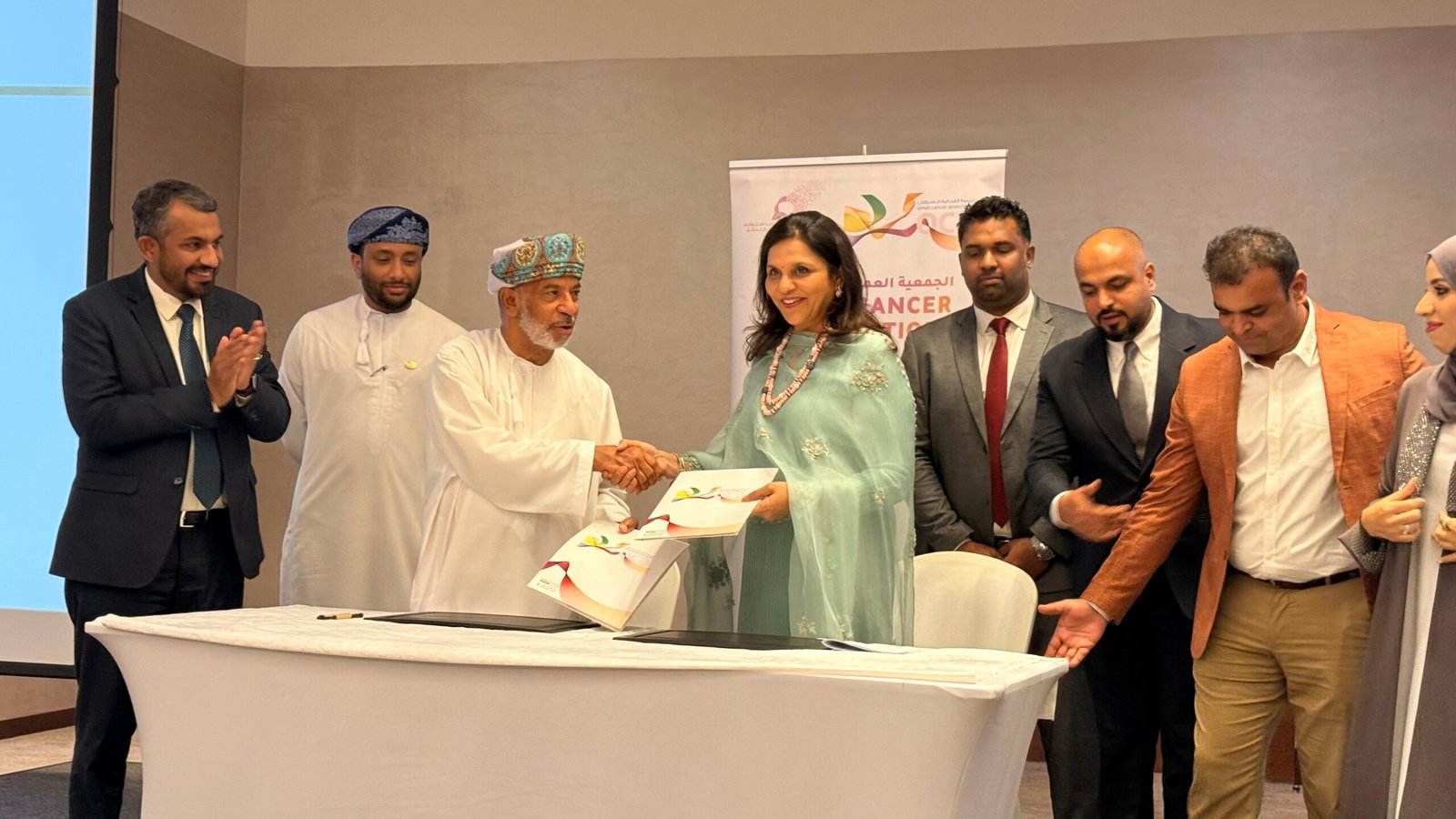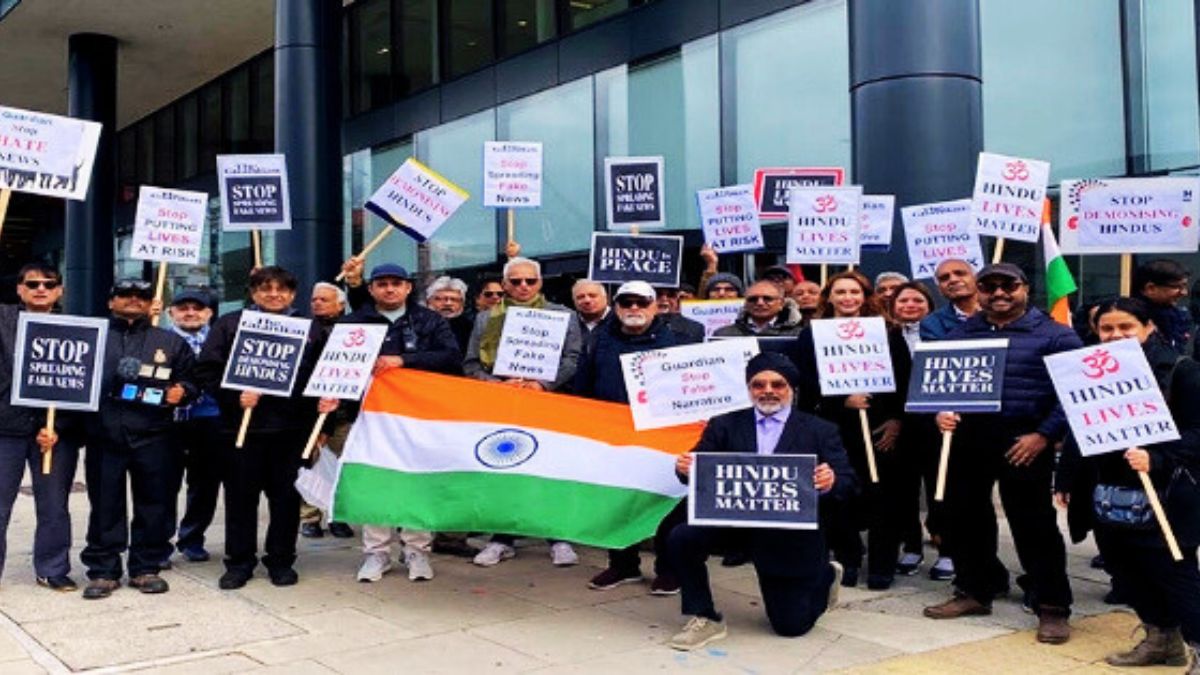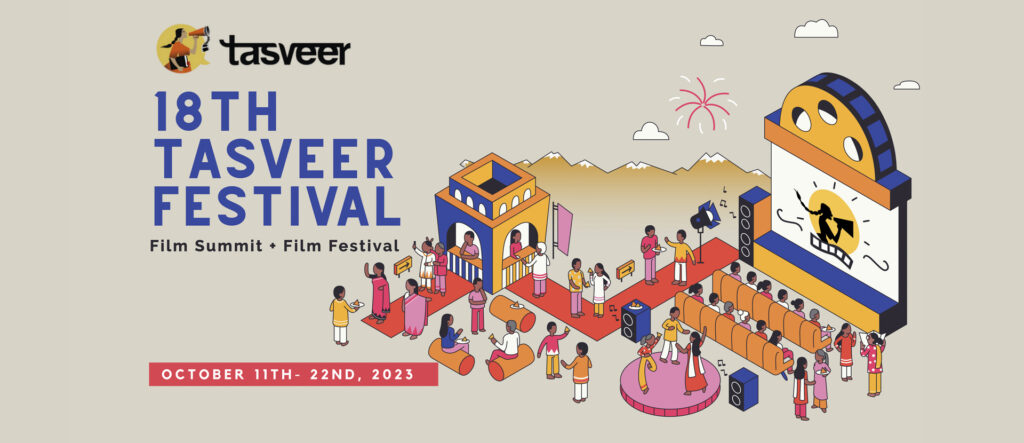Prayer and politics intersect at the Sri Guru Singh Sabha gurdwara, where a parked cube van festooned with signs served as a political bandwagon
Signs posted on the gates of a Sikh temple in the shadow of Toronto’s Pearson Airport declared it a “referendum war zone”, reported theglobeandmail.com. But inside the gurdwara’s perimeter on Sunday afternoon, the atmosphere was festive. Drums beat and children played as hundreds of people formed a long snaking line toward the temple doors. They were waiting to cast ballots on a provocative question: Do you want the Indian state of Punjab to become an independent country called Khalistan?
Prayer and politics intersect at the Sri Guru Singh Sabha gurdwara, where a parked cube van festooned with signs served as a political bandwagon. From it flew the maple leaf banner, flanked by yellow-and-blue flags with the Sikh symbol and its double-edged sword – Canada and the Khanda, side by side.
This effort is fated to be symbolic. Votes cast by Sikhs living outside India will never persuade that country to part with Punjab. Critics say Canada’s 770,000 Sikhs – the religion’s largest diaspora group – forfeited their right to have a say in Punjab’s future when they moved away from it.
“If people in Quebec wanted to have separation, they wouldn’t go to Russia to have a referendum,” said Shinder Purewal, a professor of political science at B.C.’s Kwantlen Polytechnic University who studies South Asia. He said the Sikh secessionist movement has been fading in India and abroad, but that hard-liners in Western democracies are looking to revitalize it.
While the referendum’s results, which are expected in one to two years, are likely to change nothing, the exercise is having real effects on Canada’s relationship with India, causing frictions that could spread to security and trade relations between Canada and what is now the world’s most populous country.
India is Canada’s largest source country for immigrants and international students, and it is increasing its role as a vital Canadian trade partner. But Indian Prime Minister Narendra Modi’s Hindu nationalist government sees the Sikh secessionist dream as a major security threat. It has blacklisted several organizers of the ballot-casting exercise as subversives under its domestic laws, though many are out of reach – including those living in Canada.
For the two countries, these dynamics revive the searing tensions of another time. In 1985, when India was facing armed insurgency by some Sikhs in Punjab, it warned Canada about a cell of Vancouver-based terrorists who were preparing to lash out.
India’s concerns about Sikh secessionists and the Khalistan movement have not abated. In June, Indian Foreign Minster Subrahmanyam Jaishankar warned that New Delhi is very concerned there are “activities which are permitted from Canada which impinge on our sovereignty, territorial integrity, on our security.”
But Canadian politicians say they are not about to clamp down on a voting exercise, and Prime Minister Justin Trudeau has denied India’s allegations that his government is being soft on extremism. “They are wrong,” Trudeau said early this month. “We have always taken serious action against terrorism … we will also make sure that we are pushing back against violence and extremism in all its forms.”
The standoff between India and Canada over the resurgent Khalistan movement has been building in recent months. India has been calling for Canada to provide heightened security for its diplomats, and has also accused the federal government of pandering for Sikh votes
After Canada’s Khalistan activists circulated flyers that said “Kill India,” Foreign Minister Mélanie Joly issued a statement saying that this was unacceptable. She pledged to protect India’s envoys.
The Khalistan referendum campaign’s rhetoric is often incendiary. A billboard on a Brampton, Ont. roadway promoting the vote used the image of Talwinder Singh Parmar. It showed him surrounded by a stylized Canadian flag and a message urging motorists to “Investigate India’s role” in the 1985 bombing.
What the billboard did not say is that Parmar, a Canadian resident at the time of the Air India bombing, was pursued by CSIS and the RCMP, who believed him to be the attack’s mastermind. Federal officers bungled a surveillance campaign against him, including by erasing wiretaps of his communications in the lead-up to the bombing. He was killed in India, in 1992.
Today, some members of the local South Asian community say signage featuring Parmar proves the referendum is revisionism, and not just a benign ballot-casting exercise.
“It’s like putting up Osama bin Laden’s posters all over the city in Brampton and Mississauga and celebrating his life,” said Arvind Mishra. The 35-year-old was among a group of counter protesters who rallied around the Indian consulate during a recent demonstration by pro-Khalistan protestors.
The standoff between India and Canada over the resurgent Khalistan movement has been building in recent months. India has been calling for Canada to provide heightened security for its diplomats, and has also accused the federal government of pandering for Sikh votes.
*******************************************************
Readers
These are extraordinary times. All of us have to rely on high-impact, trustworthy journalism. And this is especially true of the Indian Diaspora. Members of the Indian community overseas cannot be fed with inaccurate news.
Pravasi Samwad is a venture that has no shareholders. It is the result of an impassioned initiative of a handful of Indian journalists spread around the world. We have taken the small step forward with the pledge to provide news with accuracy, free from political and commercial influence. Our aim is to keep you, our readers, informed about developments at ‘home’ and across the world that affect you.
Please help us to keep our journalism independent and free.
In these difficult times, to run a news website requires finances. While every contribution, big or small, will makes a difference, we request our readers to put us in touch with advertisers worldwide. It will be a great help.
For more information: pravasisamwad00@gmail.com

